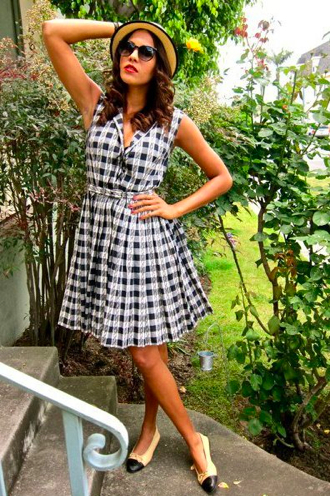Entries Tagged 'Babies' ↓
October 24th, 2008 — Babies, Gifts
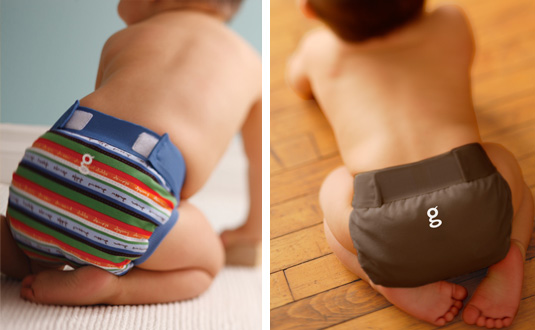
Introducing the new Hybrid Diaper…
The best of cloth and disposable in an earth-friendly diaper.gDiapers have no elemental chlorine, no perfumes, no smell, no garbage and no guilt. gDiapers consist of a washable, cotton outer “little g” pant and a plastic-free flushable diaper refill. They are made of breathable material just like sports clothing. So, babies stay dry and happy and are far less likely to get diaper rash.
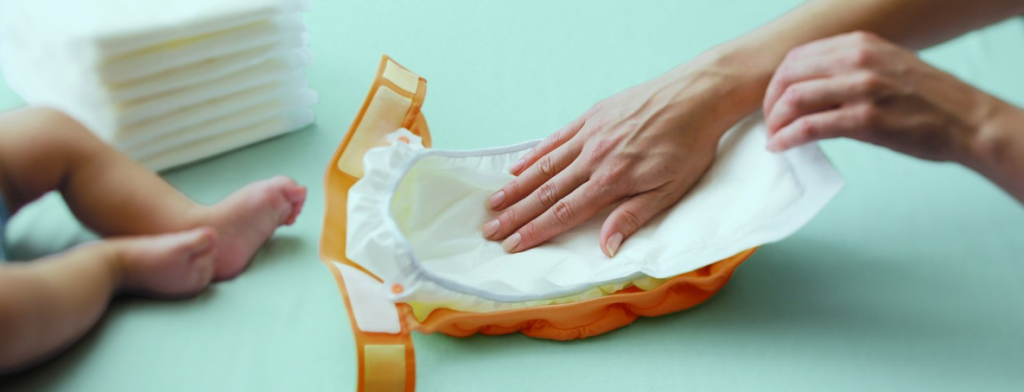
Flush, compost or toss. Can’t flush? It’s ok to toss our flushable diaper refills because they’re plastic-free. Or garden compost the wet ones. They’ll break down in 50-150 days.

A totally new way to think about diapers.Once you get the hang of it, the whole process will seem as normal as recycling your newspaper.In the beginning, you may have an icky encounter until you get into the groove of using gDiapers. You can also compost the wet ones or simply toss the soiled refill. It will break down in the landfill in about 90 days vs. up to 500 years for a disposable. Ah, the beauty of plastic-free diapers.

This makes for a terrific baby shower gift. The company offers a “G Baby Shower Gift” ( Includes a starter kit plus an extra g pant and case of small flushable refills) 89.99. Also is a Starter kit (2 Little G Pants and 10 flushable Refills) 26.99
Visit www.Gdiapers.com for more information.


October 24th, 2008 — Babies
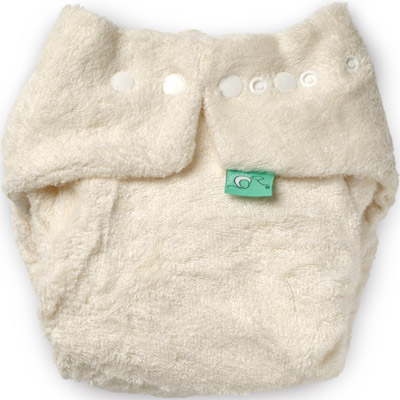
A government report that found old-fashioned reusable nappies damage the environment more than disposables has been hushed up because ministers are embarrassed by its findings.
The Department for Environment, Food and Rural Affairs (Defra) has instructed civil servants not to publicise the conclusions of the £50,000 nappy research project and to adopt a “defensive” stance towards its conclusions.
The report found that using washable nappies, hailed by councils throughout Britain as a key way of saving the planet, have a higher carbon footprint than their disposable equivalents unless parents adopt an extreme approach to laundering them.
To reduce the impact of cloth nappies on climate change parents would have to hang wet nappies out to dry all year round, keep them for years for use on younger children, and make sure the water in their washing machines does not exceed 60C.
The conclusions will upset proponents of real nappies who have claimed they can help save the planet. Restricted Whitehall documents, seen by The Sunday Times, show that the government is so concerned by the “negative laundry options” outlined in the report, it has told its media managers not to give its conclusions any publicity.
The report found that while disposable nappies used over 2½ years would have a global warming , impact of 550kg of CO2 reusable nappies produced 570kg of CO2 on average. But if parents used tumble dryers and washed the reusable nappies at 90C, the impact could spiral to . 993kg of CO2 A Defra spokesman said the government was shelving plans for future research on nappies.
October 24th, 2008 — Babies
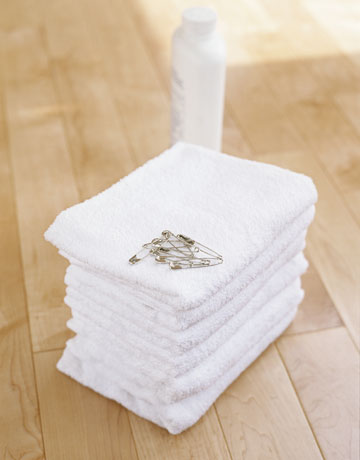
1887 – First mass- produced cloth diaper introduced in the U.S.
1940 – Diaper Services become popular
1950’s – Kendall, Parke-Davis and Playtex roll out their own versions of the disposable Diaper
1961- Pampers enters the market
1980- Environmentalist orginizations begin advocating for a return to cloth diapers.
1990’s – Disposable diapers are used be 95 percet nof U.S. parents
2006 – The First Hybrid Diapers is introduced in the U.S.
Souce – Diaperjungle.com, MotherJones, and Pregnancy Magazine
October 24th, 2008 — Babies
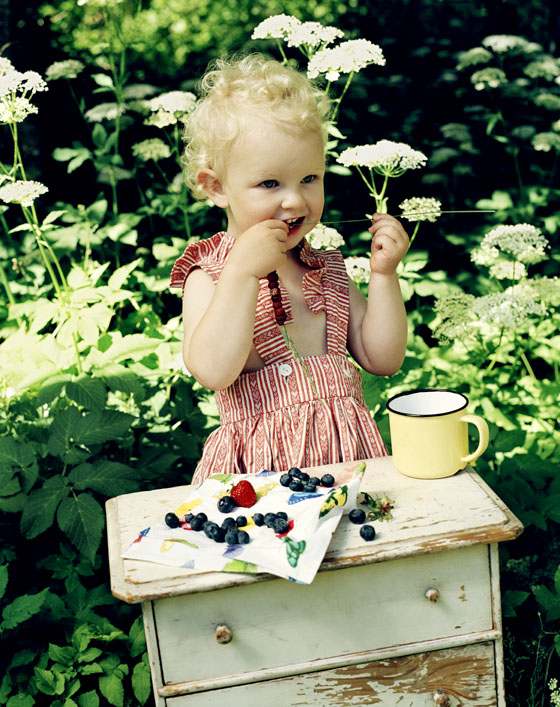
NATURE BABYCARE – Eco-Friendly Baby Diapers
Product features:
– Award Winning Premium Performance eco-friendly disposable diaper
– Awarded the Eco Label “Good Environmental Choice” of Swedish Society for Nature Conservation (SSNC)
– NO oil-based plastics against baby’s skin- Kinder and more gentle to your baby and the environment
– Breathable and chlorine-free with natural based material, for natural protection
– Ultra-thin construction gives a non-bulky fit, enabling your baby to move around freely
– Consumer packaging is based on 100% natural renewable material. No oil-based plastics!
– Winner of the 06-07 Silver Award for “Best Disposable Diaper,” featured in Mother & Baby Magazine, a leading UK
baby magazine
Features and Benefits of Nature babycare:-Chlorine-free absorbent materials
– does not contribute to dioxin pollution-100 % natural based back sheet
– NO plastic – reduce the greenhouse effect-100 % natural distribution layer
– NO plastic – reduce the greenhouse effect-100 % compostable consumer packaging
– NO plastic – reduce the greenhouse effect-No latex, fragrance, or TBT (tributyl tin)
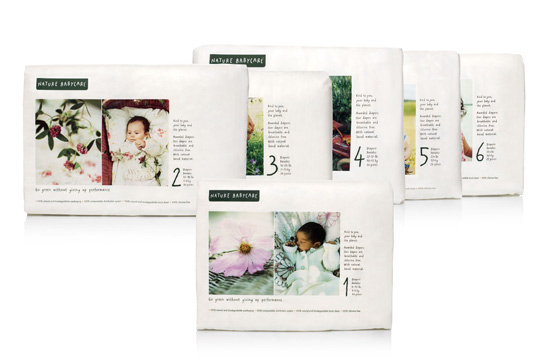
Diapers
Nature babycare is the result of many years of intense work and development.It is the first ECO-friendly high-performance diaper, based on new green technology, protected by a Swedish patent.The diaper is soft, thin, comfortable and with perfect sizing. It’s performance is as good as the best ”traditional” diapers. It has an exclusive 100 % chlorine free absorbent material and the material against the baby’s skin is based on corn instead of plastic like traditional diapers, 100% compostable, breathable and extremely kind for the baby. The packaging is 100 % compostable and based on corn.
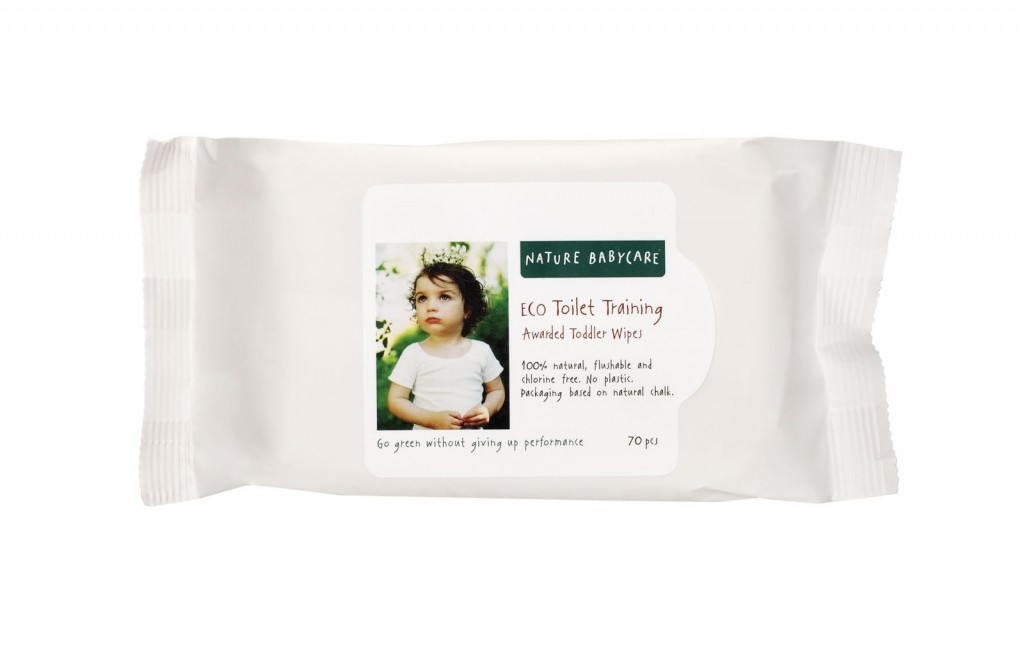
Wipes
The raw material of the wipes is made of wood from sustainable eco-managed forests.They are 100% natural, compostable and totally chlorine free. The film is based on natural chalk.Bio Wet Wipes are easy to use, easy to carry with you and refreshing for you or your babies needs. The wipes have The Swedish Society for Nature Conservation approval
Toiletry
The Nature Toiletry line is developed in cooperation with The Swedish Society for Nature Conservation, with all ingredients certified by them.All products are free from allergenic, carcinogenic, reproductive-disturbing or hormonal imbalances causing ingredients.
Available at Most Target Locations


















